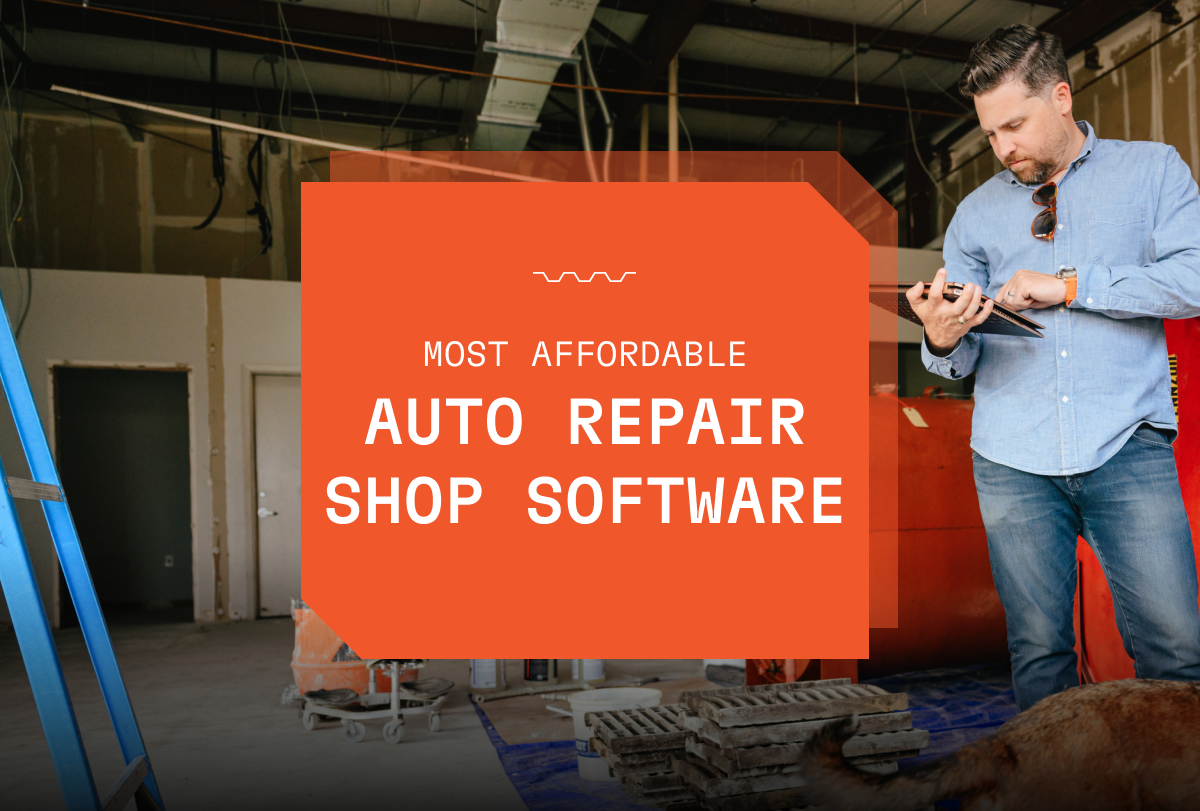When you started your auto repair business, you probably had to make some big investments, including property, equipment, and employees. Now, to take your shop even further, you might be considering investing in a shop management system.
A shop management system can quickly transform your shop. An ideal system helps you create more efficient workflows and keep track of critical metrics so you can make savvier business decisions.
However, the idea of transformation can cause some doubts. You might be worried that your team might not even like using the shop management system, that adjusting to change will take too long, and that the software ultimately won’t end up paying for itself.
To eliminate doubts, it’s important to find the shop management system that will:
- Transform your shop with little hassle, as quickly as possible
- Inspire your team to work more efficiently
- Grow your business’ profitability so that the investment is more than worthwhile
- Free up your time
So, what’s the best software for auto repair shop owners? And what features should you look for? Here’s what you should be considering as a shop owner.
Cloud-Based
There’s a reason more and more people are switching to cloud-based software: it’s hassle-free. To transform your shop, you won’t have to go through an extensive, complicated installation process that involves purchasing and setting up servers. You also won’t have to worry about losing your data if those servers malfunction.
Instead, with cloud-based software, you can just move over your data, log in to your system on your browser, and in no time, you and your team can get to work. Once you and your team have gotten the hang of it, you’re free to pretty much work from anywhere you have an internet connection.
With Tekmetric, your shop’s data lives on the cloud. After all, there are days when you won’t be able to make it to the shop. Maybe your child is sick and you need to take them to the doctor, or maybe you need to head out of town for a conference. But, in either case, you still want to know what’s going on at your shop. Here’s how Tekmetric user Matthew Carlson of Fix It Forward Auto Care puts it:
”The thing that really impressed us right away with Tekmetric was the ease-of-use—the ability for anybody in the shop to see what's going on and be able to use it. Because it's cloud-based, everyone in my shop has a computer, and they know what’s going on.”
Customer Support
Change is challenging, especially when it comes to switching to a new shop management system. A cloud-based solution simplifies the transformation process from the get-go, but a reliable customer support team will help you get your data transferred over within the first few weeks. They’ll also help you and your employees quickly learn everything you need to know to overcome initial challenges and maximize the software.
The reality is that no software is hiccup-free, especially when you’re learning to navigate it as a new user—you’ll want to learn all the tips and tricks that will make your life a breeze.
Tekmetric’s reliable customer support team will be on hand to answer any questions that pop up along the way. Down the line, even as an established, experienced user, you might have a question or two about, say, a newly released feature. When you have these types of questions, you’ll want to reach customer support as soon as possible. At Tekmetric, we resolve our users’ issues rapidly, so they can keep moving their daily operations forward.
No matter which solution you’re considering, here are some questions to ask to determine how reliable their customer support is:
- What is your process for getting my data moved over?
- What are the best ways to reach your customer support team?
- What are your customer support hours?
- How many people are on your customer support team?
- How long does it take on average to resolve support tickets?
Integrations
When you’re onboarding to a new shop management system, integrations can help you make that transformation even more seamless.
After all, chances are that you use other solutions (parts ordering, marketing platforms, etc.) to grow your business. Ideally, you want a shop management system that has a substantial number of integrations, so you can easily keep using the tools you love alongside each other.
And with integrations, you won’t have to spend valuable time hopping back and forth between a million open tabs, and you can even explore new tools!
Tekmetric integrates with over 35 industry-leading solutions in parts ordering, marketing, management and communication, including:
- BG Products
- PartsTech
- WORLDPAC
- MyShopManager
- Kukui
- The Back Office
- Slack
Workflows
Think about the various workflows you already have at your shop. Perhaps service advisors are required to update guests once their repairs are 50% of the way through. To get that information, they regularly check in with the technicians. The right shop management system will transform existing workflows at your shop, making it easier for your team to work in harmony.
With Tekmetric, you can boost your team’s efficiency. Tekmetric helps your team achieve a work more efficiently by decreasing their distractions, offering them a sense of control, and helping them set clear goals.
For example, Tekmetric’s Job Board gives service advisors a bird’s eye view of which stage every repair is in at your shop, including how much time is remaining. Service advisors can instantly get that information without leaving their workstations.
When you streamline workflows with Tekmetric, your team members will be able to manage themselves better. In turn, you’ll be able to focus less on managing the day-to-day operations of your shop, and more on the high-level decisions that will help you bring in more revenue, hire more team members, and perhaps even open more locations.
Reporting
One of the keys to growing your auto repair business is keeping track of various metrics, including average repair orders, car count, profit margins, labor hours, and mechanic labor efficiency.
Ideally, you want a shop management system that can generate in-depth reports and help you analyze your shop’s data, so you can make business adjustments as necessary.
For example, after reading through an End-of-Day Report, you might realize that your shop’s profit margins aren’t as wide as you’d like them to be. You can do several things to turn that around, such as ramping up your shop’s marketing efforts or slightly increasing the pricing on certain parts.
Tekmetric offers over 15 types of reporting so you can keep a pulse on your business in real time. Those reports include end-of-day reports, tech hours, declined jobs, parts purchased reports, and more.
Scalability
As you’re making decisions to grow your business, you might want to hire more employees or open another location. The last thing you want to worry about is the added cost of adding a new user or building an entirely new management system each time you open a new location.
When you’re ready to scale, it should be easy and affordable to add users or implement your shop management system at a new shop.
Tekmetric enables you to add unlimited users and devices within a single shop. And opening a new shop on Tekmetric is as simple as adding it to the system!
The Best Software For Auto Repair Shop Owners Eases Transformation, Boosts Efficiency, and Grows Your Business
Ultimately, the best software for auto repair shop owners is one that will help them transform and grow their shops with ease. To summarize, here’s how the core features we discussed help you accomplish shop transformation and growth:
Of course, you’ll want to consider other features too, such as true two-way-texting that enhance your guest experience, and touchless payment features that will enable your guests to pay whenever and wherever it’s most convenient for them.
When you start with these core features, you’ll be able to transform your shop, scale, and look at your numbers regularly and go, “Wow, this change was worth it!”


%20(1).png)
-%20article%20img.png)

.png)

.svg)



.svg)